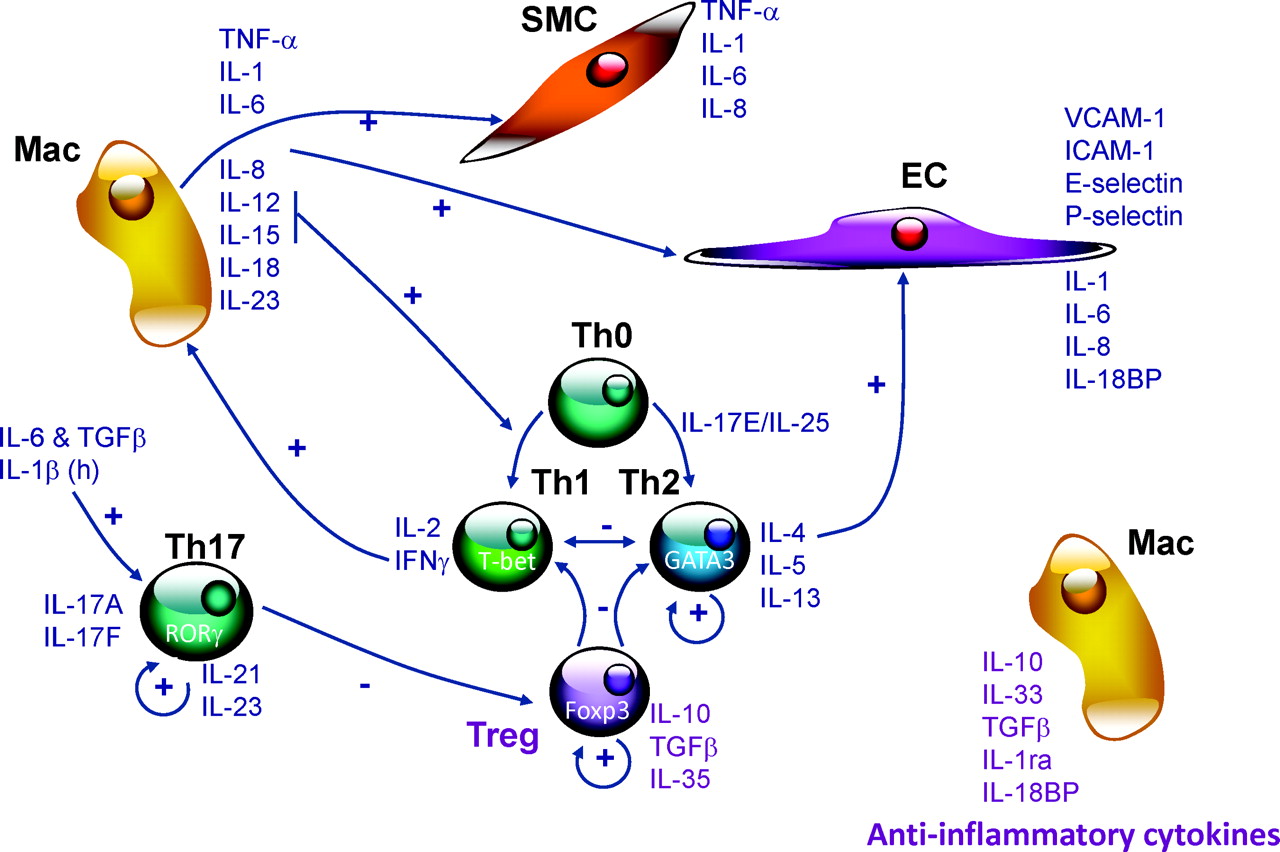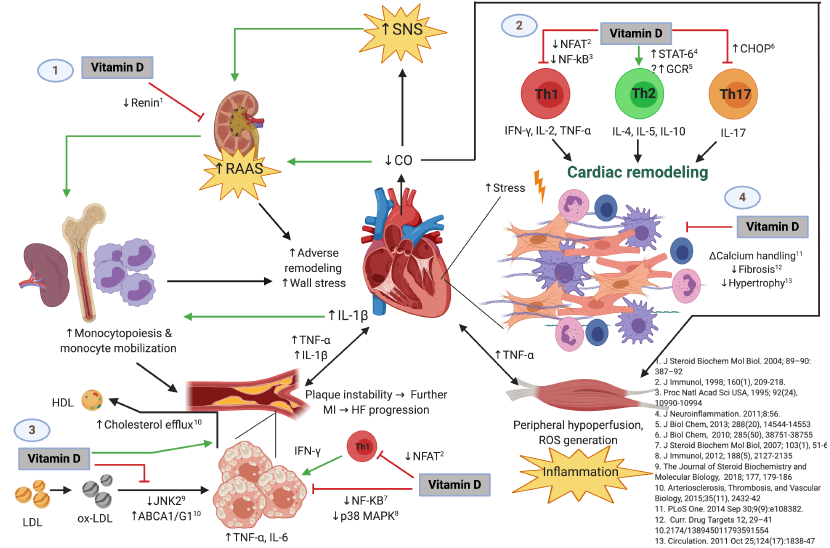Introduction:
Atherosclerosis, the buildup of plaque in the arteries, is a leading cause of cardiovascular disease. Inflammatory cytokines play a critical role in the development and progression of atherosclerosis. In this article, we will discuss the role of these cytokines, the mechanisms by which they contribute to the disease, and current research on potential therapeutic targets.
Inflammatory cytokines are a group of signaling molecules that play a key role in the immune response. They are produced by various cells, including macrophages and T-lymphocytes, and are responsible for the recruitment and activation of immune cells to sites of injury or infection. In the context of atherosclerosis, these cytokines contribute to the formation and progression of plaque in the arterial wall.
The exact mechanisms by which inflammatory cytokines contribute to atherosclerosis are not fully understood. However, it is known that these molecules can promote the recruitment and activation of immune cells, such as macrophages, to the arterial wall. These activated macrophages then ingest low-density lipoproteins (LDL) and become foam cells, which are a key component of atherosclerotic plaques. Inflammatory cytokines can also stimulate the proliferation and migration of smooth muscle cells, leading to the formation of fibrous caps over the plaques. These caps are important in preventing the plaques from rupturing, but they also contribute to the formation of occlusive stenosis.

Pro- And Anti-Inflammatory Cytokines:
Several specific inflammatory cytokines have been implicated in the development and progression of atherosclerosis. Tumor necrosis factor-alpha (TNF-α) is a pro-inflammatory cytokine that has been shown to promote the formation of foam cells and the proliferation of smooth muscle cells. Interleukin-1 (IL-1) is another pro-inflammatory cytokine that has been shown to promote the formation of foam cells and the formation of fibrous caps over plaques. Interleukin-6 (IL-6) is a pro-inflammatory cytokine that has been shown to promote the formation of foam cells and the proliferation of smooth muscle cells.
There is also a growing body of evidence that suggests that the balance between pro-inflammatory and anti-inflammatory cytokines is important in the development and progression of atherosclerosis. For example, interleukin-10 (IL-10) is an anti-inflammatory cytokine that has been shown to inhibit the formation of foam cells and the proliferation of smooth muscle cells.

Current Research:
Current research is focusing on potential therapeutic targets that can modulate the levels of inflammatory cytokines in the arterial wall. One promising target is the TNF receptor, which is the primary receptor for TNF-α. Inhibitors of this receptor, such as infliximab and adalimumab, have been shown to reduce the progression of atherosclerosis in animal models. Another promising target is the IL-1 receptor, which is the primary receptor for IL-1. Inhibitors of this receptor, such as anakinra, have also been shown to reduce the progression of atherosclerosis in animal models.
Inflammatory cytokines play a critical role in the development and progression of atherosclerosis. These molecules contribute to the formation and progression of plaque in the arterial wall by promoting the recruitment and activation of immune cells, such as macrophages, to the arterial wall. They also contribute to the formation of fibrous caps over plaques, which are important in preventing the plaques from rupturing. Current research is focusing on potential therapeutic targets that can modulate the levels of these cytokines in the arterial wall, with the goal of reducing the progression of the disease. However, more research is needed to fully understand the complex interactions between inflammatory cytokines and the development of atherosclerosis.
Treatment And Medical Usage:
In addition to the targets discussed above, other potential therapeutic options are being investigated. For example, statins, which are commonly used to lower cholesterol levels, have been shown to also have anti-inflammatory effects. This is thought to be one of the mechanisms by which they reduce the risk of cardiovascular disease. Another potential therapeutic option is the use of anti-inflammatory agents such as aspirin, which has been shown to reduce the risk of cardiovascular disease by inhibiting the formation of thrombi and by modulating the levels of inflammatory cytokines.
Another avenue of research is the use of probiotics and prebiotics to modulate the gut microbiome and reduce inflammation in the body. Studies have shown that the gut microbiome plays a crucial role in regulating the immune response, and that changes in the microbiome can lead to increased inflammation. Probiotics and prebiotics have been shown to improve gut health and reduce inflammation, and may have potential as therapeutic options for atherosclerosis.
Finally, lifestyle changes, such as diet and exercise, are also known to reduce inflammation and improve cardiovascular health. A diet that is rich in fruits, vegetables, whole grains, and lean protein can help to reduce inflammation, lower cholesterol levels, and improve overall cardiovascular health. Regular exercise has also been shown to reduce inflammation, lower cholesterol levels, and improve cardiovascular health.
Conclusion:
Inflammatory cytokines play a critical role in the development and progression of atherosclerosis. Current research is focused on potential therapeutic targets that can modulate the levels of these cytokines in the arterial wall. However, more research is needed to fully understand the complex interactions between inflammatory cytokines and the development of atherosclerosis. Additionally, other therapeutic options such as statins, anti-inflammatory agents, probiotics and prebiotics and lifestyle changes are also being investigated as ways to reduce inflammation and improve cardiovascular health.
